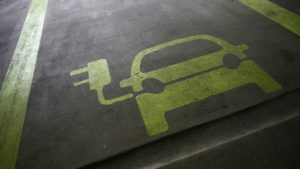Clean energy = Decarbonisation of energy
Goal #7 objective is to ensure access to affordable, reliable, sustainable and modern energy for all… is this possible? Such an important issue was address for one complete day at COP22 (Conference of the Parties) in Morocco.
The main goal is to provide energy to 1.1 billion people in the world that currently have few or no access to electricity, but right now I want to focus in all the people that already have access to energy and are contributing to the greenhouse emissions. One of the most ambitious commitments is to decarbonize the use of energy around 2050.
“The climate objectives agreed in Paris require nothing less than the radical decarbonisation of the global economy,” Adnan Z. Amin, IRENA Director-General
By now governments and private companies are making the transition to renewable energy, more than 300 cities pledged to go 100% renewable and on the private sector we can find influential companies committed to achieve this. But how much money does this represents? According to the International Energy Agency (IEA) it represents 1.8 trillion dollars.
There are different action plans to finance this goal, for example the Green Climate Fund a mechanism of the UN that regulates the money between developed countries and economically fragile countries. Also nowadays we face new energy realities so it is easier to have the banks support for investments due to the low tendency of carbon. Another example are NGO like MobiliseYourCirty that supports governments in planning sustainable and clean mobility. In addition the carbon market was mention at COP22 for the greenhouse reduction trading.
On the conference “Energy for economic growth” Diego Pavía CEO EIT Innoenergy mention that there were 3 energy goals and 3 economic goals to innovate and have an impact in sustainable energy.
- Energy goals: lower the cost, increase the resilience of the system and decrease the greenhouse emissions.
- Economic goals: maintain and create new jobs, increase the competiveness of the society and reindustrialize our economies
To achieve this all the investment need to fulfill these objectives.
Based on these 6 energy and economic goals I selected to focus on the decrease of greenhouse emissions specifically on the transport sector, which is responsible for a quarter of the total emissions, as one of the main consumers of fossil fuels.
On COP22 there were different discussions about how to finance the transition to electric transportation, for example to reduce or stop the subsidy of fossil fuels. If the governments stop investing in this they could use this money to support renewable energy for the transportation sector. Another cheaper alternative with a significant impact in the transportation is encouraging people to use more public transport and share rides, this could reduce emissions in 30% without a huge investment. A different solution could be a proper policy for taxation for example carbon pricing.
The World Bank plays a critical role supporting and financing countries, they can bring a structured framework and facilitate the road to become more efficient.
Electric cars /”clean cars” are only a half solution if the electrical energy that they use to charge comes from oil or coal. We need to go deeper and have a holistic solution. Maybe we don’t use directly fossil fuels for the car but we will use them indirectly when we charge it and as a result we would have a higher consumption of electrical energy.
During COP22 on the “green” transport sector I notice a strong presence of private companies and not many participation of governments.From my point of view private companies are the engine of the economy and have a huge impact in the environment. If the decision they made are based on the impact they will have economically, socially and environmentally we could move forward.
I think the government need to boost incentives for private “clean transport” so we can see drastic changes. Governments play a fundamental roll in achieving and keeping sustainable transport.
For example in Norway the government gave different incentives to promote electric vehicles and we can see an exponential growth in the past three years. Electric cars don’t pay taxes, don’t pay toll roads, can park for free and use the bus lanes. This is a clear case of a successful policy that other governments should implement.
We need solutions where the transport supports economic and social development that facilitate the access to mobility and create value. Mohamed Boussaid
Cooperation and partnership is the key to achieve any of the Sustainable Development goals, we need the collaboration between governments, companies, cities, investors and the society.
With our choices we can make a difference…
Sources
- United Nations Framework Convention on Climate Change (12 November 2016) “Acelerando la acción climática hacia un transporte bajo en emisiones” Available at: http://newsroom.unfccc.int/es/accion-climatica/cp-agenda-de-accion-transporte/
- Alice Yiu (14 November 2016) “Shifting gear towards low carbón tranport – Global Climate Action” Available at: http://www.slocat.net/news/1776
- Leo Mirani (07 May 2015) “Norway`s electric-car incentives were so good they had to be stopped” Available at: http://qz.com/400277/norway-electric-car-incentives-were-so-good-they-had-to-be-stopped/
- Climate Action Now Summary for Policymakers 2016, United Nations Climate Change Secretariat Available at: http://climateaction2020.unfccc.int/media/1281/unfccc_spm_2016.pdf
- UITP Advancing Public Transport (11 November 2016) “COP22 and Public Transport” Available at: http://www.uitp.org/news/COP22-in-Marrakesh
- Sustainable Energy for all (2016) Available at: http://www.se4all.org/energyefficiencyplatform_transport-motor-vehicle-fuel-efficiency
- IRENA International Renewable Energy Agency (2016) “The Renewable rout to sustainable transport” Available at:http://www.irena.org/DocumentDownloads/Publications/IRENA_REmap_Transport_working_paper_2016.pdf
- Video: Energy for economic growth, European Union Energy Day (15 November 2016) Available at: http://euenergyday.eu/webstreaming.html
- United Nations, Sustainable Development Goals, Goal 7: energy Available at: http://www.un.org/sustainabledevelopment/energy/






.png)
].gif)
.png)
].png)
].png)
].png)
.png)
].png)
.png)
